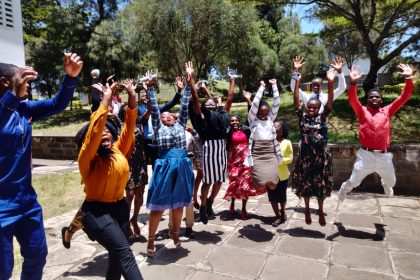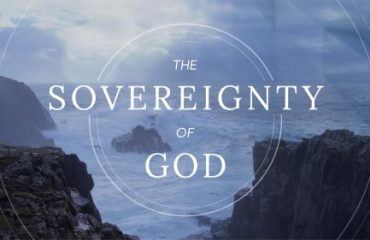
The context of the tides: the COVID exile
Psalm 137 was written many years into the Babylonian exile. The Jews were away from their homeland, with the harsh reality of being geographically displaced. Probably worse than that was the unpleasant impact that the exile had in their loss of the structured, reliable world which provided them with meaning. Exile was not just geographical, it was a social, moral, cultural, liturgical and spiritual issue.
In Verse 1 they say ‘By the rivers of Babylon we sat and wept when we remembered Zion. They wept over the death of so many loved ones, the loss of almost everything they owned, the destruction of Jerusalem and the temple. They even wept at the brutality of their captors. What did the future hold as well? The book of Lamentations gives a snapshot reflection of what it felt like to live through the tragedy of Jerusalem’s destruction and the people’s exile in Babylon. Being in exile challenged their fundamental core; there was a crisis of faith; how can God be worshiped without a temple?
Like in exile people are weeping over the restrictions on fellowship and movement. The containment measures to test and trace the contacts and the virus, the growing mental health issues amplified by the stress of lockdown are a destabilization to our wellness. On top of that, we grapple with the reeling economic crisis. The ‘new normal’ which is an offset, now includes wearing of marks, social distancing, remote learning and working.
There are a lot of changing dynamics of ministry, many limitations, and a lot of uncertainty of what the future holds. Just like the exiles, this remains a legitimate question; how can we sing the Lord’s song in a foreign land? What does godly leadership mean in such a context? In such a situation of exiled faith, exiled student life, exiled ministry and generally exiled life, the tides can threaten us. I see 3 major tides that we need to be aware of.
a) The Tide of Fear
For the exiles, there was a multitude of fears. Lamentations reveal Judah’s pathetic condition as a dishonored people at the hands of the Babylonians. They feared their captors, the torment, and their broken relationship with God, etc. Likewise, COVID-19 has increased anxiety among us. We are afraid of situations, the unanswered questions, and phobia of contracting the virus.
b) The Tide of Discouragement
The exiles suffered from mockery according to Verses 2 and 3: “There on the poplars we hung our harps, for there our captors asked us for songs, our tormentors demanded songs of joy; they said, “Sing us one of the songs of Zion!” What cruelty to make a people cry, and then require them to sing! What a discouraging situation!
Discouragement is a sense of defeat and hopelessness. It has the cumulative effect of sapping us of energy and vision. We get more discouraged when the conditions prolong. The fatigue leaves us vulnerable to more pain. It is often as though many things have conspired to discourage us.
c) The Tide of Unbelief
Unbelief dares to question the truthfulness of God. In unbelief we become shaky about God’s promises. For the exiles, many lost their faith in Yahweh, unable to understand how their exile related to their belief that Yahweh was their protector, the one who fought for them. How could Jerusalem the Holy City fall to a heathen king? Could God not have delivered them? This tide of unbelief can harden our hearts, fill us with presumption and create impatience, and potentially fuel false teachings.
RISING ABOVE THE TIDES
How would one arise above the tides that comes with such situations? Scriptures offers us a very rich admonition for our consideration. In Acts 20:28, the Bible says, ‘keep watch over yourselves and all the flock of which the Holy Spirit has made you overseers.’ Two lessons can be learned from this scripture;
a) Practice shepherd care; Keep watch over yourselves
You need to work diligently towards a healthy heart and mind. Be in touch with God through prayer and Bible study. You must highly esteem God’s word and by it, guard your heart. Romans 12:2 affirms this ‘Do not conform to the pattern of this world, but be transformed by the renewing of your mind. Then you will be able to test and approve what God’s will is-his good, pleasing and perfect will’.
Work diligently towards healthy habits for your physical body including; rest, sleep, regular exercise and healthy diet. Avoid being like Prophet Elijah in 1 Kings 19: When he was worn out, because of ministry, the Lord made him sleep for a day, then eat and then go back to sleep. instead, consider the model in Mark 6:31; Jesus said to them, `Come away with me. Let us go alone to a quiet place and rest for a while.’
Diligently cultivate a healthy attitude. You will need Christian ‘Emotional intelligence’ where you understand, use, and manage your own emotions in positive ways. You will need it to deal with stress and communicate effectively in these difficult times. You will need it to effectively empathize with others.
b) Practice sheep care: Keep watch over all the flock
1 Peter 5:2 Be shepherds of God’s flock that is under your care, watching over them—not because you must, but because you are willing, as God wants you to be; not pursuing dishonest gain, but eager to serve.
The sheep belong to God. Recognize what you can do, and what only God can do. Someone said, ‘You do not have to die on every cross you see.’ God knows the sheep, He is sovereign, and He is in control. The perspective affects also your attitude as well as practice.
A shepherd’s primary responsibility is the safety and welfare of the flock. Leading, feeding and protecting the sheep is no easy task especially compounded by the Corona exile realities. Ultimately you should say to the flock, “Follow me as I follow Christ” 1 Corinthians 1:11, and then faithfully follow the example of servant leadership as shown in Christ.
Even in this Corona-exile we will rise above the tides as we look to the God whom the Psalmist said:
“You rule the raging of the sea; when its waves rise, you still them”. Psalm 89:9




